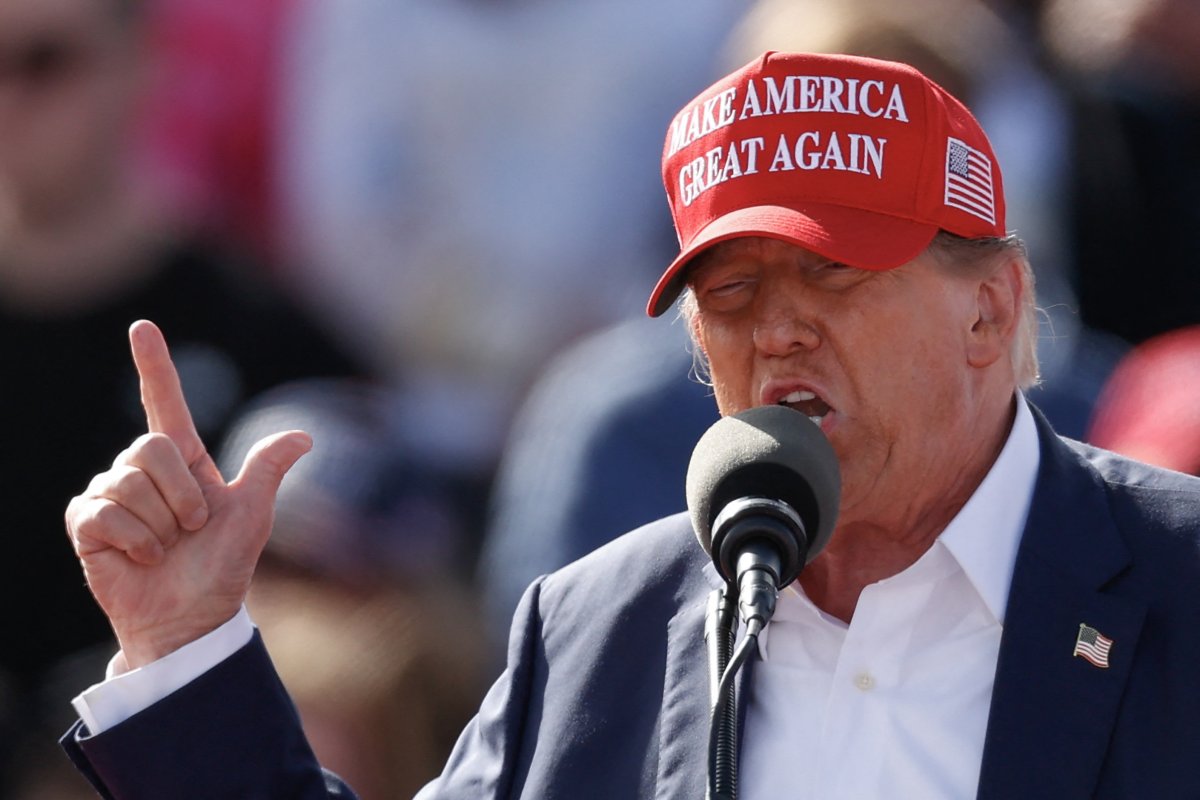
Donald Trump is being scrutinized and widely ridiculed for his past comments about his wealth after his own lawyers said he doesn’t the funds available to pay fines from a recent civil ruling.
Last fall, New York Judge Arthur Engoron found Trump liable for fraud and ordered him to pay a penalty of $355 million, which ultimately was increased to $454 million with interest, as part of the civil fraud lawsuit filed by New York Attorney General Letitia James against Trump, his adult sons, and members of the Trump Organization.
The former president is seeking a bond of $464 million to cover his fines and the disgorgement for his sons Eric and Donald Jr., who were co-defendants in the case. Disgorgement requires a party who benefits financially from illegal or wrongful acts to give up any profits they made as a result of that conduct.
They were initially accused in 2022 of participating in a years-long scheme of inflating Trump’s net worth and the value of his assets to obtain more favorable business loans.
Trump’s legal team, as part of a new court filing on Monday in a New York appeals court, requested a stay in the execution of the monetary portion of the civil fraud ruling, pending the outcome of an appeal process.
They called the penalty excessive and that “enforcing an impossible bond requirement as a condition of appeal would inflict manifest irreparable injury on defendants.”

KAMIL KRZACZYNSKI/AFP via Getty Images
“Despite scouring the market, we have been unsuccessful in our effort to obtain a bond for the judgment amount for defendants for the simple reason that obtaining an appeal bond for $464 million is a practical impossibility under the circumstances presented,” the filing reads.
It also says that “diligent “efforts” have been made, approaching about 30 surety companies through four separate brokers.
Newsweek has reached out to Trump’s legal team via email for comment.
The filing follows routine criticism of Trump’s comments regarding his net worth and actual assets on hand, based on his multiple legal battles—including four criminal trials stemming from indictments last year.
Those are in addition to civil rulings in the New York fraud case plus the tens of millions awarded to E. Jean Carroll in a pair of defamation suits related to sexual assault charges.
Andrew Weissmann, the former general counsel for the FBI who served as lead prosecutor in Special Counsel Robert Mueller’s investigation of Trump’s 2016 campaign, wondered who the former president was “beholden” to.
“I thought he was a billionaire?’ Weissmann wrote on X, formerly Twitter, on Monday. “So is he lying to the public or the court?”
“Self-professed billionaire says he can’t pay civil judgment after breaking law,” wrote former Los Angeles Times and current KTLA business columnist David Lazarus.
Reuters reporter Michael Derby sarcastically wrote on X: “Self-described billionaire Trump hits a cash-flow problem.”
The filing comes some two weeks after Trump—who Forbes estimated to be worth about $2.6 million as of last September—told Fox News’ Brian Kilmeade about securing a bond: “I have a lot of money. I can do what I want to do.”
Trump also said he doesn’t “worry” about anything, including money.
Legal analysts have questioned why the Federal Insurance Company, a part of insurance company Chubb Corporation, secured a $91.6-million bond on Trump’s behalf in the $83.3 million judgment in the Carroll case—upped to $91.6 million with interest.
New York-based attorney Nicole Brenecki told Newsweek via email on Monday that Trump’s inability to secure the bond “speaks to many issues.”
“That could be due to his finances not being as robust as he would like the public to believe,” she said, highlighting the recent $91-million defamation verdict also requiring the posting of a bond.
“However, insurance companies rarely issue bonds in excess of $100 million,” she added. “If they do, it is usually for companies and not for individuals. They also tend not to accept real estate as collateral and require high advances on bond premiums. All of these factors make posting this astronomical bond a practical impossibility.”
Uncommon Knowledge
Newsweek is committed to challenging conventional wisdom and finding connections in the search for common ground.
Newsweek is committed to challenging conventional wisdom and finding connections in the search for common ground.

 Latest Breaking News Online News Portal
Latest Breaking News Online News Portal




